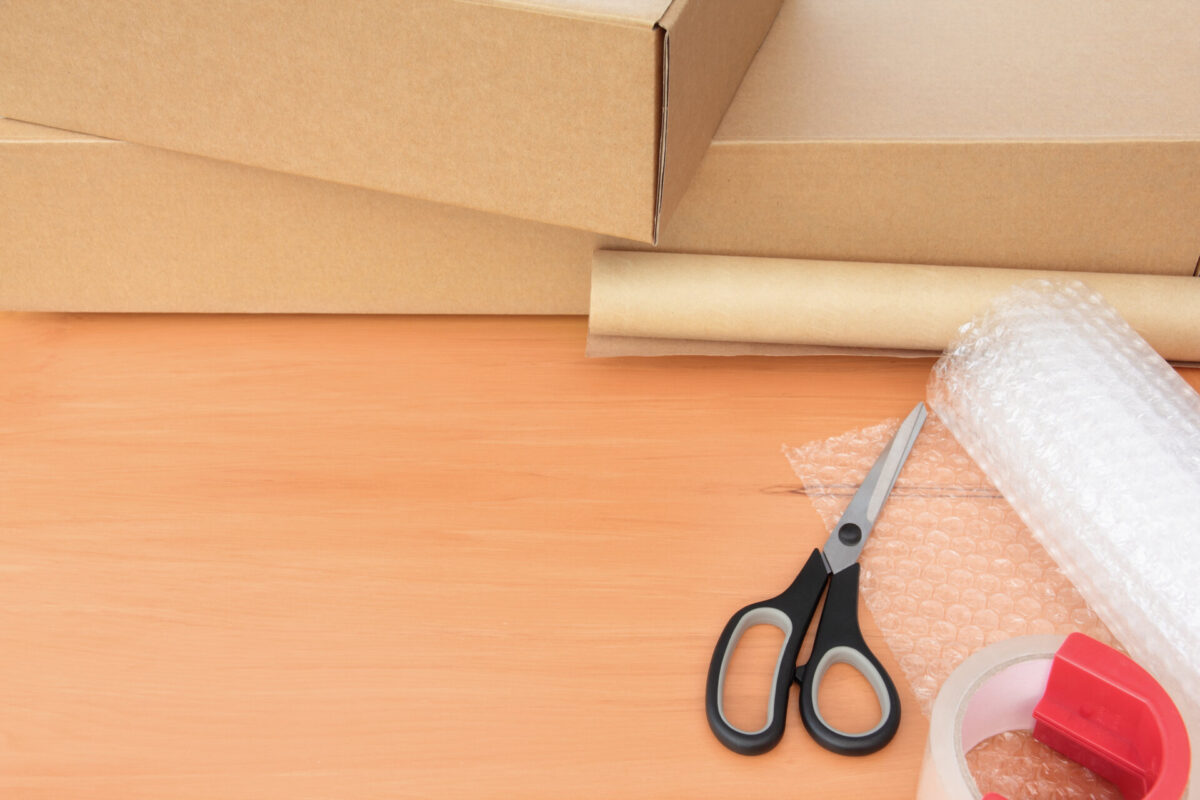Tackling packing procrastination head-on, we’re here to turn an overwhelming task into an exhilarating countdown to your next big adventure. Imagine transforming the chaos of last-minute packaging into a well-oiled machine of proactive packing habits. It’s time to bring fun into the equation, say goodbye to the stressful scrambles when moving internationally, and hello to a stress-free journey filled with laughter and efficiency.


So, what is packing procrastination? This issue refers to the all-too-common habit of delaying the task of organizing and packaging belongings for a trip or a move, often until the very last minute. This delay can stem from a variety of reasons, such as feeling overwhelmed by the task, uncertainty about where to start, or simply underestimating the time and effort required. To combat this, start by breaking the task into smaller, manageable chunks and set clear deadlines for each. Creating a detailed list can also help to visualize the process and make it feel more manageable.
Why Do We Have Packing Procrastination?
Delving into the psychological aspects of why we delay organizing our belongings for a relocation reveals a complex interplay of emotions and thoughts. Central to this behavior is what’s known as relocation stress. This specific form of stress arises from the anxiety about moving out, a process filled with unknowns and significant changes.
Another critical factor is the fear of not being able to package belongings efficiently. This fear can stem from self-doubt or past experiences of feeling unprepared or rushed. It leads to a paralysis of sorts, where the enormity of the task at hand seems insurmountable, causing further delay.
That being said, procrastination is a common issue, and it’s connected to almost any sphere of life, not just in the case of relocating overseas.
The Consequences of Last-Minute Packaging
Delving into the repercussions of delaying tasks until the final moments before a move reveals a cascade of challenges. Numerous things need to be done before the relocation date, and postponing them would only lead to nervous breakdowns. When crucial tasks are pushed to the brink of a last-minute relocation process, the consequences can be:
- Increased stress – The hurried effort to complete everything magnifies anxiety and hampers clear decision-making.
- Forgetting essential items – Amid the rush, important belongings can be easily overlooked or left behind.
- Damaged belongings – Lack of time for careful and efficient moving preparation often results in improper packaging, risking damage to items when shipping overseas.
- Higher costs – The need for urgent services or expedited shipping due to time constraints can lead to unexpected expenses.
- Disorganization – Hasty packaging leads to chaos, making the process of settling into a new place more difficult and time-consuming.
These consequences highlight the importance of packing schedule planning and starting the process well in advance, ensuring a smoother and more efficient transition.


Setting Realistic Goals and Deadlines
Setting realistic goals and deadlines is important for a smooth transition. Creating a feasible timeline starts with identifying what to pack and what not to pack, which helps in prioritizing items. The easiest way to pack for a relocation is to approach it room by room, beginning with the least used spaces. This method reduces the feeling of being overwhelmed.
Start by packaging decorative items and out-of-season clothing, gradually moving towards daily essentials as the moving day approaches. Aim to have most items packed a few days before the move, leaving only the necessities for the last day. This is the most effective method of avoiding last-minute packing.
How to Create a Relocation Checklist?
What can be instrumental in setting goals for the entire relocation is creating a checklist, especially when moving abroad. A comprehensive moving abroad checklist should include all tasks, from the smallest details to major arrangements. It should cover tasks such as:
- Securing important documents,
- Choosing an international moving company,
- Notifying relevant parties,
- Decluttering items
- Obtaining packaging materials.
It should be organized in a timeline format, outlining what needs to be done weeks, days, and hours before the move. This detailed approach ensures that nothing is overlooked and that each step is carried out in a timely and organized manner.


Organizing Your Belongings Ahead of Time
Begin organizing for packing well in advance. This process involves categorizing belongings to make packaging, moving, and unpacking as easy as possible. Sort items based on their usage and room. For example, keep kitchen items together, separate from bedroom or living room belongings.
Next, consider the size and fragility of items, packaging delicate items with extra care and labeling them clearly. It’s also helpful to create an inventory of your belongings, which can be a simple list or a detailed spreadsheet. This not only helps in keeping track of everything but also simplifies the process of setting up in the new space.
Tips for Sorting Items and Deciding What to Pack, Donate, or Discard
Deciding what to pack, donate, or discard is an essential step in the process of planning a relocation. To determine what to get rid of, assess each item’s usefulness, emotional value, and practicality in your new space. If an item hasn’t been used in over a year, it might be a candidate for donation or disposal.
Clothing, books, and household items in good condition can be donated to organizations like Goodwill or The Salvation Army, which not only declutters your space but also benefits those in need. For items that are worn out or broken, consider recycling or discarding them responsibly.
This process not only reduces the volume of items required to be transported but also gives you a fresh start in the new home with only the things that are truly necessary or meaningful. Remember, the goal is to simplify the relocation and set the stage for a new beginning with a more organized collection of belongings.
Watch the video below for practical tips on how to declutter your home before moving.
Breakdown the Packaging Process
You need to know about efficient packing strategies. To make this overwhelming task more manageable, it’s essential to break down the process into smaller segments. Start completing the tasks from the relocation to-do list.
First, box up items that are infrequently used, such as seasonal clothing or decorative pieces, and gradually move towards everyday essentials as the moving day approaches.
Allocate specific days for different categories or rooms, ensuring that each segment of the process receives the attention it needs. This approach allows for a more organized packing experience, as it avoids the chaos of trying to handle everything at once.
Tools and Resources for Efficient Packaging
For stress-free packing solutions, especially when moving overseas, having the right tools is essential. Purchase basic supplies like sturdy boxes, tape, bubble wrap, and markers for labeling. Specialized supplies like wardrobe boxes for clothes or dish pack boxes for fragile items can lead to a streamlined process.
Also, using vacuum bags for bulky items like bedding can save a lot of space. Consider investing in a portable scale to weigh your luggage or boxes, ensuring they meet airline or shipping weight limits. Utilizing apps or online checklists can also help in keeping track of what has been packed and what remains.


Try to Overcome the Mental Block of Packing
To combat this issue, start by setting small, achievable goals. For instance, focus on arranging one shelf or drawer at a time. This reduces the task to a more manageable size and provides a sense of accomplishment. Consider incorporating a fun element, like playing your favorite music or an audiobook, to make the process more enjoyable.
Visualization techniques can also be helpful. Imagine the ease and relief you will feel in your new space with everything neatly arranged. If you find yourself stuck, step away for a short break or tackle a different, less difficult task for a while.
Rely on Rewards and Incentives
Using rewards and incentives can be a powerful motivator in maintaining ongoing efforts. Set up a reward system for each milestone achieved in your organization process. This could be as simple as treating yourself to a favorite snack after completing a section of your home or planning a relaxing evening once a significant part of the task is done.
These rewards create positive associations with the process, reducing the feeling of it being a chore. These small celebrations not only boost morale but also help maintain focus and motivation. Remember, the ultimate reward lies in the joy of moving to another country.


When Should You Consider Professional Packing Services?
For those who tend to delay the task because they hate packing, considering professional moving services can be the perfect choice. In scenarios involving an overseas shipping company, the complexity of ensuring that items are properly prepared for international transport can be overwhelming. But with expert packers, the issue is solved.
Hiring movers who specialize in professional packing services can significantly alleviate this burden. These professionals bring expertise in efficiently sorting and securing belongings, ensuring they are appropriately protected for transit. Their services are particularly beneficial for those with busy schedules or for whom the task of organizing induces significant stress.
Worry About Procrastination Doesn’t Exist With the Right Team by Your Side
Key strategies to beat procrastination include setting small, achievable goals, creating a detailed timeline, and incorporating rewards for each milestone reached. But, when you partner with an experienced team like Sunset International Shipping, an expert overseas moving company, these concerns fade away.
By choosing us, you’re not just investing in moving by sea services – you’re moving with a partner who understands the importance of every detail in the journey. Don’t let the stress of organizing hold you back. Contact us at Sunset International Shipping, where we transform the challenges of relocation into a seamless and stress-free experience.
FAQ
The main reasons people experience packing procrastination when moving are feeling overwhelmed, lacking structure, and underestimating the time needed to pack. Many delay starting because they don’t know where to begin or feel emotionally attached to their belongings. This hesitation often leads to last-minute chaos and stress. Disorganization, decision fatigue, and distractions can also play major roles. Recognizing these habits early helps you take proactive steps to overcome them. Understanding the root causes of packing procrastination makes your moving process far more manageable.
Creating a packing schedule is one of the most effective ways to beat packing procrastination before moving. Begin by setting clear deadlines for each room and breaking tasks into smaller chunks. Work backward from your moving date to ensure every stage is covered. Schedule short daily sessions instead of exhausting full-day marathons. Use a checklist or calendar to track progress and hold yourself accountable. An organized packing timeline reduces stress and ensures nothing is left behind.
To overcome packing procrastination during a move, start by decluttering and organizing your belongings early. Separate items into categories: keep, donate, sell, or discard. Label boxes by room and priority to simplify unpacking later. Gather all supplies in one spot so you don’t waste time searching for materials. Having a clear plan and designated spaces for each task boosts focus. Organization eliminates excuses for delay and helps you stay on track before moving day.
Breaking down the process into smaller steps is a proven way to combat packing procrastination when moving. Instead of tackling everything at once, focus on one area at a time—like closets, drawers, or specific rooms. Achievable goals create a sense of progress and reduce overwhelm. Marking off completed sections on a list provides motivation to keep going. This method helps you maintain momentum without burning out. Small, consistent efforts lead to a smoother and faster moving experience.
Having the right supplies ready helps eliminate packing procrastination and keeps your moving process efficient. Gather sturdy boxes, tape, markers, labels, and bubble wrap in advance. Keep scissors and trash bags nearby so you can pack without interruptions. Color-code boxes for different rooms to make unpacking easier later. Specialized items like wardrobe boxes or dish dividers can save time and protect valuables. Being fully stocked encourages immediate action and helps you stay organized.
To beat packing procrastination during a move, use short bursts of productivity and consistent motivation. Try setting a timer for 30-minute focused sessions followed by brief breaks. Music, podcasts, or upbeat playlists can make packing more enjoyable. Reward yourself with small treats after completing difficult areas. Packing with a friend or family member also adds accountability and fun. Staying energized and positive helps you stay productive throughout the moving process.
If packing procrastination has caused major delays or stress, hiring professional packers can be a smart move. Experts handle sorting, wrapping, and boxing efficiently, saving you hours of effort. They bring the necessary materials and experience to protect fragile items. This option is especially useful for large homes or last-minute moves. Although it adds to your budget, it guarantees speed and organization. Hiring professionals ensures your moving timeline stays on track without panic.
Professional packers help combat packing procrastination by managing the most time-consuming aspects of moving. Their organized systems keep tasks progressing even if you feel stuck or unmotivated. They use high-quality materials and techniques to pack safely and efficiently. Many services also include labeling and inventory management for smoother unpacking. Having experts handle the details eliminates stress and wasted time. This professional support allows you to focus on other moving priorities confidently.
Emotional attachment often causes packing procrastination because letting go of items feels difficult. Start by sorting belongings into “keep,” “donate,” and “discard” piles with clear intention. Remind yourself that memories live in experiences, not objects. Taking photos of sentimental items before parting with them can help ease the process. Setting small daily goals makes decluttering emotionally manageable. Overcoming attachment gradually allows you to pack efficiently and move forward positively.
Common mistakes that cause packing procrastination include underestimating time, lacking supplies, and not starting early enough. Many people also skip organization and pack randomly, which leads to frustration later. Waiting for the “right time” often results in rushed, stressful packing. Distractions and multitasking can also slow progress. Avoid these pitfalls by planning and packing in short, consistent sessions. Awareness of these habits helps ensure a smoother, more efficient moving experience.
A detailed checklist is a powerful tool for overcoming packing procrastination when moving. It helps visualize progress and provides a clear plan for each stage. Break your checklist down by room or category for better structure. Marking completed tasks builds momentum and motivation. Having all tasks in writing reduces mental clutter and decision fatigue. With a strong checklist, you stay organized, productive, and on schedule.
Effective time management is crucial to avoiding packing procrastination before and during a move. Allocate time blocks specifically for sorting, boxing, and labeling items. Set reminders and use countdown calendars to stay on pace. Avoid multitasking—focus solely on one area at a time. This structure prevents stress and last-minute rushing. Managing your time wisely ensures your move stays smooth and under control.
Overcoming packing procrastination during a move leads to smoother transitions, less stress, and greater control. You’ll arrive at your new home organized and ready to unpack efficiently. It also saves money by preventing last-minute supply purchases or damage to belongings. The experience teaches valuable planning and time management skills. You’ll feel more confident in handling future relocations. Ultimately, conquering packing procrastination makes the moving process efficient, calm, and rewarding.













